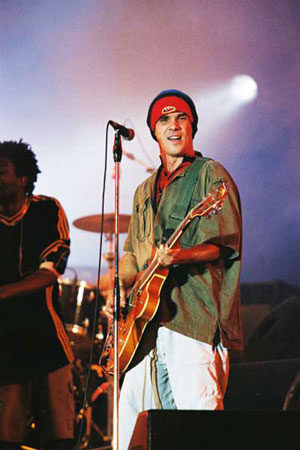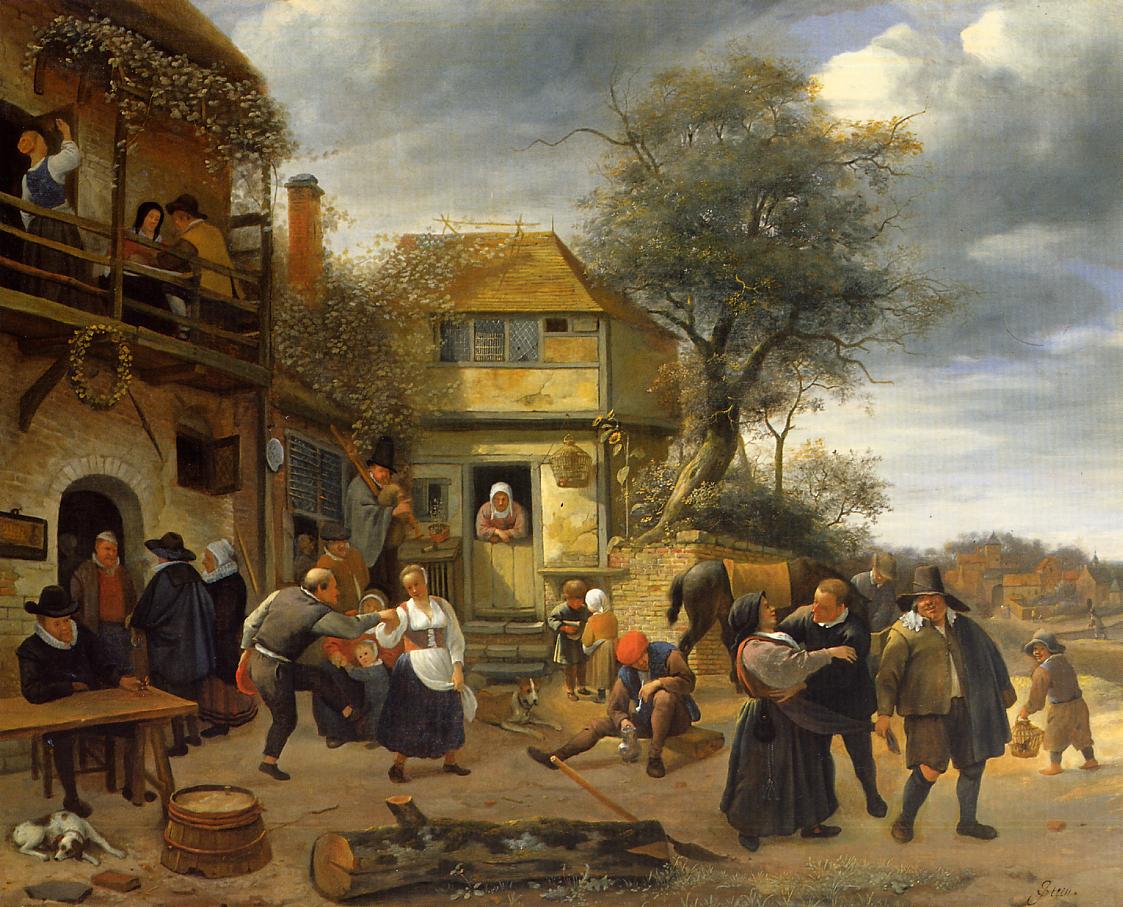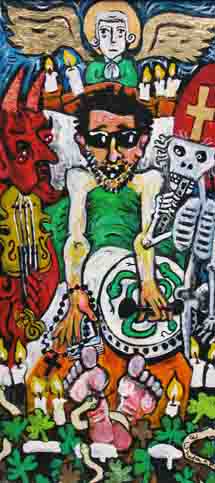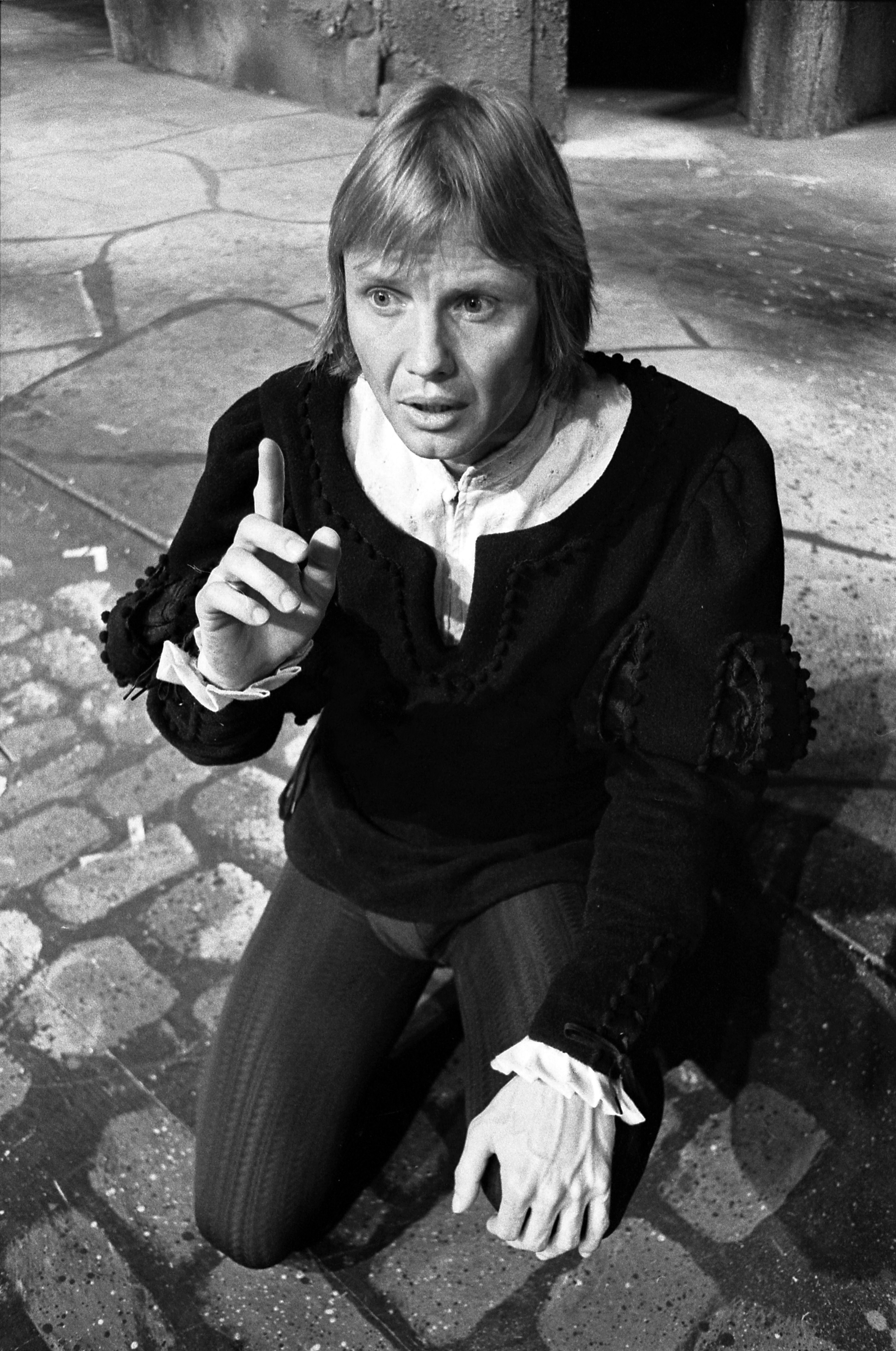|
The Cobblestone
The Cobblestone is a pub in Smithfield, Dublin, renowned for its live Irish traditional music. The pub has been run by the Mulligan family since 1987. It hosts multiple music sessions a day, and is primarily sustained by the tourist trade. In 2021 it was under threat of closure as part of a redevelopment plan to convert its rear venue room and outside area and surrounding buildings into a nine-storey hotel but Dublin City Council denied the scheme planning permission after public outcry and protest. The protests, which involved John Francis Flynn, Ispíní na hÉireann and over 400 others, caused Gardaí to shut down the quays of the Liffey. Performers and visitors to the pub have included The Chieftans, Mary Black with Steve Martin supporting on banjo, comic Billy Connolly, chef Anthony Bourdain, actor Jon Voight and musician Manu Chao. ''The Guardian'' named The Cobblestone as "Ireland's most famous traditional music pub" in 2021. ''Condé Nast Traveller'' described its se ... [...More Info...] [...Related Items...] OR: [Wikipedia] [Google] [Baidu] |
Smithfield, Dublin
Smithfield () is an area on the Northside, Dublin, Northside of Dublin, Ireland. Its focal point is a public square, formerly an open market and Common land, common, now officially called Smithfield Plaza, but known locally as Smithfield Square or Smithfield Market. Historically, Smithfield formed the western part of Oxmantown and lay close to Oxmantown Green. Originally, Smithfield lay within the civil parish of St. Paul's, and was served by the Church of Ireland St. Paul's Church (Church of Ireland), St. Paul's Church, on North King Street, now the SPADE Business Centre, and the Catholic St. Paul's (Roman Catholic) Church, Dublin, St. Paul's Church, on Arran Quay, now used by the Catholic Youth Council, and Mission Ministry. The area known as Smithfield roughly incorporates the area bounded by the River Liffey to the south, Bow Street to the east, Queen Street, Dublin, Queen Street to the west, and North Brunswick Street in the suburb of Grangegorman to the north. Notable lan ... [...More Info...] [...Related Items...] OR: [Wikipedia] [Google] [Baidu] |
Manu Chao
Manu Chao (; born José Manuel Tomás Arturo Chao Ortega on 21 June 1961) is a French-Spanish musician. He sings in French language, French, Spanish language, Spanish, English language, English, Italian language, Italian, Arabic, Catalan language, Catalan, Galician language, Galician, Portuguese language, Portuguese, Greek language, Greek, and occasionally in other languages. Chao began his musical career in Paris, Street performance, busking and playing with groups such as Hot Pants (band), Hot Pants and Los Carayos, which combined a variety of languages and musical styles. With friends and his brother Antoine Chao, he founded the band Mano Negra (band), Mano Negra in 1987, achieving considerable success, particularly in Europe. He became a solo artist after its breakup in 1995 and since then has toured regularly with his live band, Radio Bemba Sound System. Early life Chao is of Spanish and Cuban Spanish, Spanish-Cuban origins. Chao's mother, Felisa Ortega, is from Bilbao, Basqu ... [...More Info...] [...Related Items...] OR: [Wikipedia] [Google] [Baidu] |
2000s In Irish Music
S, or s, is the nineteenth letter of the Latin alphabet, used in the English alphabet, the alphabets of other western European languages and other latin alphabets worldwide. Its name in English is ''ess'' (pronounced ), plural ''esses''. History Northwest Semitic šîn represented a voiceless postalveolar fricative (as in 'ip'). It originated most likely as a pictogram of a tooth () and represented the phoneme via the acrophonic principle. Ancient Greek did not have a "sh" phoneme, so the derived Greek letter Sigma () came to represent the voiceless alveolar sibilant . While the letter shape Σ continues Phoenician ''šîn'', its name ''sigma'' is taken from the letter ''Samekh'', while the shape and position of ''samekh'' but name of ''šîn'' is continued in the '' xi''. Within Greek, the name of ''sigma'' was influenced by its association with the Greek word (earlier ), "to hiss". The original name of the letter "Sigma" may have been ''san'', but due to the ear ... [...More Info...] [...Related Items...] OR: [Wikipedia] [Google] [Baidu] |
1990s In Irish Music
Year 199 ( CXCIX) was a common year starting on Monday of the Julian calendar. At the time, it was sometimes known as year 952 ''Ab urbe condita''. The denomination 199 for this year has been used since the early medieval period, when the Anno Domini calendar era became the prevalent method in Europe for naming years. Events By place Roman Empire * Mesopotamia is partitioned into two Roman provinces divided by the Euphrates, Mesopotamia and Osroene. * Emperor Septimius Severus lays siege to the city-state Hatra in Central-Mesopotamia, but fails to capture the city despite breaching the walls. * Two new legions, I Parthica and III Parthica, are formed as a permanent garrison. China * Battle of Yijing: Chinese warlord Yuan Shao defeats Gongsun Zan. Korea * Geodeung succeeds Suro of Geumgwan Gaya, as king of the Korean kingdom of Gaya (traditional date). By topic Religion * Pope Zephyrinus succeeds Pope Victor I, as the 15th pope. Births Valerian Roman ... [...More Info...] [...Related Items...] OR: [Wikipedia] [Google] [Baidu] |
1980s In Irish Music
__NOTOC__ Year 198 (CXCVIII) was a common year starting on Sunday of the Julian calendar. At the time, it was known as the Year of the Consulship of Sergius and Gallus (or, less frequently, year 951 ''Ab urbe condita''). The denomination 198 for this year has been used since the early medieval period, when the Anno Domini calendar era became the prevalent method in Europe for naming years. Events By place Roman Empire *January 28 **Publius Septimius Geta, son of Septimius Severus, receives the title of Caesar. **Caracalla, son of Septimius Severus, is given the title of Augustus. China *Winter – Battle of Xiapi: The allied armies led by Cao Cao and Liu Bei defeat Lü Bu; afterward Cao Cao has him executed. By topic Religion * Marcus I succeeds Olympianus as Patriarch of Constantinople (until 211). Births * Lu Kai, Chinese official and general (d. 269) * Quan Cong, Chinese general and advisor (d. 249) Deaths * Li Jue, Chinese warlord and regent * ... [...More Info...] [...Related Items...] OR: [Wikipedia] [Google] [Baidu] |
Music Venues In Dublin (city)
Music is the arrangement of sound to create some combination of form, harmony, melody, rhythm, or otherwise expressive content. Music is generally agreed to be a cultural universal that is present in all human societies. Definitions of music vary widely in substance and approach. While scholars agree that music is defined by a small number of specific elements, there is no consensus as to what these necessary elements are. Music is often characterized as a highly versatile medium for expressing human creativity. Diverse activities are involved in the creation of music, and are often divided into categories of composition, improvisation, and performance. Music may be performed using a wide variety of musical instruments, including the human voice. It can also be composed, sequenced, or otherwise produced to be indirectly played mechanically or electronically, such as via a music box, barrel organ, or digital audio workstation software on a computer. Music often plays a key r ... [...More Info...] [...Related Items...] OR: [Wikipedia] [Google] [Baidu] |
Pubs In Dublin (city)
A pub (short for public house) is in several countries a drinking establishment licensed to serve alcoholic drinks for consumption Licensing laws of the United Kingdom#On-licence, on the premises. The term first appeared in England in the late 17th century, to differentiate private houses from those open to the public as alehouses, taverns and inns. Today, there is no strict definition, but the Campaign for Real Ale (CAMRA) states a pub has four characteristics: # is open to the public without membership or residency # serves draught beer or cider without requiring food be consumed # has at least one indoor area not laid out for meals # allows drinks to be bought at a bar (i.e., not only table service) The history of pubs can be traced to taverns in Roman Britain, and through Anglo-Saxon alehouses, but it was not until the early 19th century that pubs, as they are today, first began to appear. The model also became popular in countries and regions of British influence, whe ... [...More Info...] [...Related Items...] OR: [Wikipedia] [Google] [Baidu] |
Mega Dreoilín
''Mega Dreoilín'' is an art project in the form of a 16-bit video game created by Han Hogan and Donal Fullam under the nom d'art Namaco. It was shown in exhibition in Pallas Projects/Studios in The Liberties, Dublin in May 2024. In the game, the player navigates the Irish housing crisis, encountering characters including James Connolly, Manchán Magan, Ian Lynch and Rory Hearne, and locations such as The Cobblestone and Guineys. It was inspired by games such as ''Splatterhouse'', ''Golden Axe'', ''Streets of Rage'', ''Final Fight'' and '' Shinobi III'', and built using the Unreal Engine and Godot. In ''The Irish Times'', Una Mullally Una Mullally is an Irish journalist and broadcaster from Dublin. She is a columnist with ''The Irish Times''. Background Mullally grew-up in Deansgrange in South County Dublin and attended Coláiste Íosagáin where she was head girl in her fi ... hailed the game as "one of the best Irish artworks of 2024 so far... incredibly engaging, brillia ... [...More Info...] [...Related Items...] OR: [Wikipedia] [Google] [Baidu] |
Shane MacGowan
Shane Patrick Lysaght MacGowan (25 December 195730 November 2023) was a British-born Irish singer-songwriter and musician, best known as the lead vocalist and primary lyricist of Celtic punk band the Pogues. He won acclaim for his lyrics, which often focused on the Irish emigrant experience; he also received widespread media attention for his lifestyle, which included decades of heavy alcohol and drug abuse. A ''New York Times'' obituary noted his "twin reputations as a titanically destructive personality and a master songsmith whose lyrics painted vivid portraits of the underbelly of Irish immigrant life." Born in Kent, England, to Irish parents, MacGowan spent his early childhood in Tipperary, Ireland, before moving back to England with his family at age six. After attending Holmewood House preparatory school, he won a literary scholarship to Westminster School but was expelled in his second year for drug offences. At age 17 to 18, he spent six months in psychiatric care ... [...More Info...] [...Related Items...] OR: [Wikipedia] [Google] [Baidu] |
Jon Voight
Jonathan Vincent Voight (; born December 29, 1938) is an American actor. Throughout his career, he has received numerous accolades, including an Academy Award, a British Academy Film Award, and four Golden Globe Awards as well as nominations for four Primetime Emmy Awards. In 2019, he was awarded the National Medal of Arts. Films in which Voight has appeared have grossed more than $5.2 billion worldwide. Associated with the angst and unruliness that typified the late 1960s counterculture, Voight won the Academy Award for Best Actor for his portrayal of a paraplegic Vietnam veteran in '' Coming Home'' (1978). His other Oscar nominations are for playing Joe Buck, a would-be gigolo, in ''Midnight Cowboy'' (1969); ruthless bank robber Oscar "Manny" Manheim in '' Runaway Train'' (1985); and sportscaster Howard Cosell in '' Ali'' (2001). His other notable films include ''Deliverance'' (1972), '' The Champ'' (1979), ''Heat'' (1995), '' Mission: Impossible'' (1996), '' The Rainmak ... [...More Info...] [...Related Items...] OR: [Wikipedia] [Google] [Baidu] |
Irish Traditional Music
Irish traditional music (also known as Irish trad, Irish folk music, and other variants) is a genre of folk music that developed in Ireland. In ''A History of Irish Music'' (1905), W. H. Grattan Flood wrote that, in Gaelic Ireland, there were at least ten instruments in general use. These were the '' crwth'' (a small rubbed strings harp) and '' cláirseach'' (a bigger harp with typically 30 strings), the '' tiompán'' (a small string instrument played with a bow or plectrum), the ''feadán'' (a fife), the ''buinne'' (an oboe or flute), the ''guthbuinne'' (a bassoon-type horn), the ''beannbhuabhal'' and ''corn'' ( hornpipes), the ''cuislenna'' (bagpipes – see Great Irish warpipes), the ''stoc'' and ''storgán'' ( clarions or trumpets), and the ''cnámha'' ( bones).''A Hist ... [...More Info...] [...Related Items...] OR: [Wikipedia] [Google] [Baidu] |






